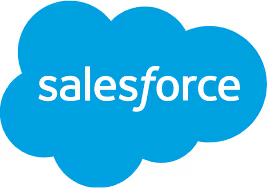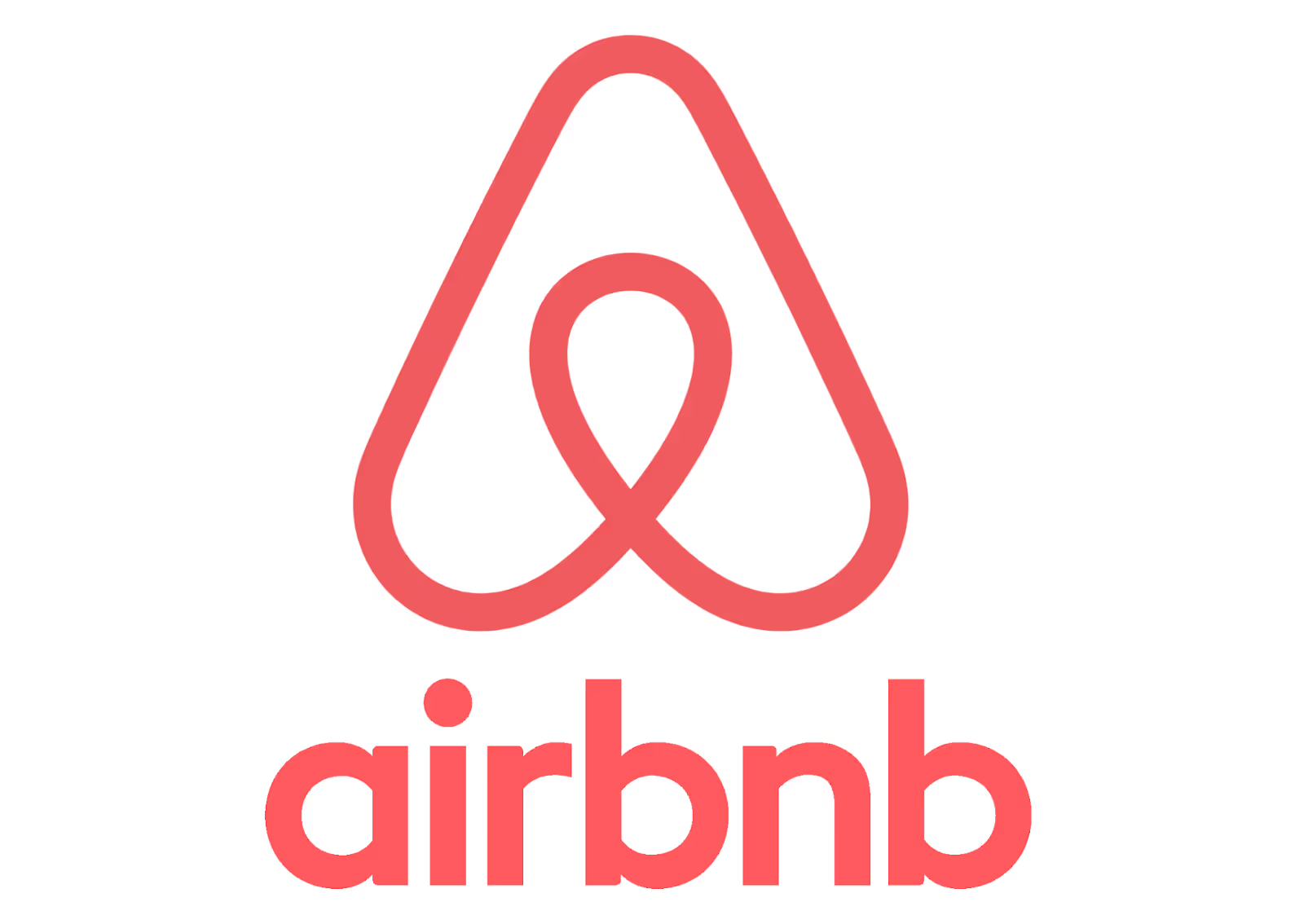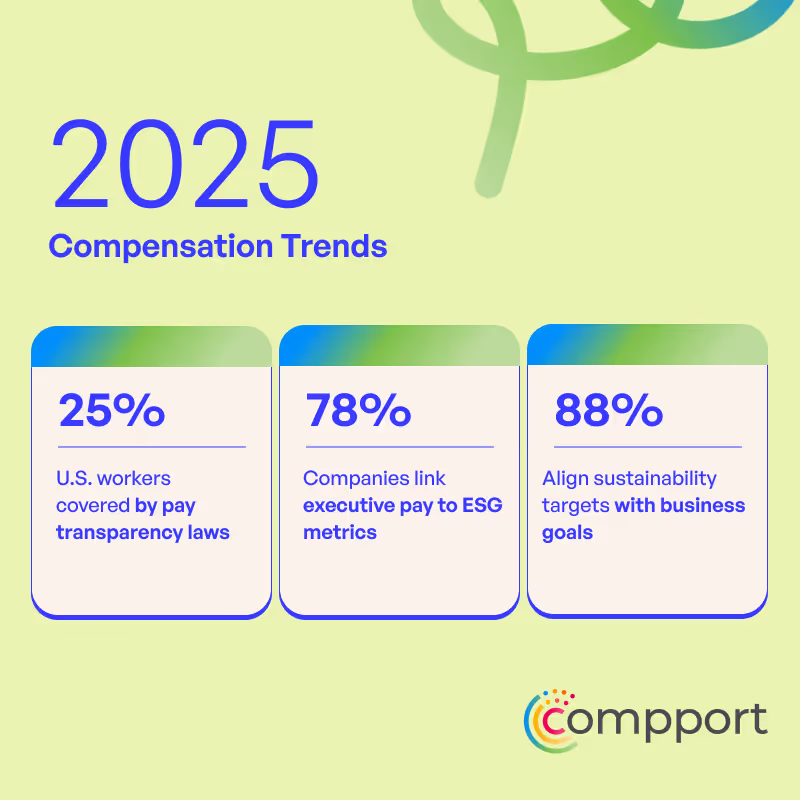"Compensation is a proxy for how the company values you.” - Krish Shankar, Ex-CHRO at Infosys.
Every salary decision, bonus structure, and equity grant tells the company what your people are worth.
What employees consider "valuable" has completely shifted. Pay transparency laws, AI reshaping roles, or people expecting more personalization in everything are all forcing HR and compensation professionals to rethink their entire compensation management approach.
Compensation isn't just salary anymore. It's a complex mix of base pay, performance rewards, ownership stakes, personalized benefits, and, above all, fairness that people can actually see and understand.
In this article, we'll discuss the types that matter now, the trends reshaping 2025, and the tools helping us build something more human-centric.
Because of your current approach? It's not keeping up.
What Are the Different Types of Compensation in HR?
Before we break down the different types of compensation, here’s a quick sneak peek for you:
Guaranteed Pay (Fixed Compensation)
Fixed compensation represents the non-negotiable foundation of employee financial security.
This includes:
- Base salary
- Housing allowances
- Transportation stipends, and
- Any other guaranteed payments that employees can count on regardless of company performance, market conditions, or individual achievements
Base pay is the foundation of an employee's compensation package and is typically expressed as an hourly rate, weekly amount, or annual salary.
The strategic purpose of guaranteed pay extends beyond simple cost-of-living coverage. It creates psychological safety that enables employees to take calculated risks, pursue innovation, and focus on long-term value creation rather than short-term survival. Organizations with strong fixed compensation foundations tend to attract talent who can afford to think strategically rather than reactively.
Example

Netflix redefined this approach by implementing a "keeper test" philosophy and top-of-market salaries across all roles. Rather than offering traditional bonus structures, Netflix pays exceptionally high base salaries and eliminates the uncertainty of variable compensation.
Their compensation philosophy states that they pay what they would spend to retain each employee if they received a competing offer from another company. This approach has allowed Netflix to maintain talent density while scaling globally.
Performance-Based Pay (Variable Compensation)
Variable compensation (or pay for performance) directly connects individual, team, and organizational results with financial rewards. This is related to:
- Quarterly bonuses
- Annual incentives
- Sales commissions
- Profit-sharing arrangements
- Project-based payments.
The core principle is that exceptional performance should generate exceptional rewards, while mediocre results receive standard compensation.
Variable pay serves multiple strategic functions beyond simple motivation.
It allows organizations to:
- Share financial risk with employees during uncertain periods
- Provide flexibility to reward unexpected achievements
- Create cultural reinforcement for behaviors that drive business results
A well-designed variable compensation system also helps organizations identify and retain their highest performers while encouraging improvement among average contributors.
Example

Salesforce's V2MOM (Vision, Values, Methods, Obstacles, Measures) framework ties variable compensation directly to measurable outcomes at individual, team, and company levels. Their quarterly bonus system rewards revenue achievements, customer success metrics, and innovation contributions.
Benefits and Perks (Indirect Compensation)
Benefits and perks (also known as indirect compensation) are related to the full spectrum of non-cash value organizations provide to enhance employee well-being, productivity, and life satisfaction.
This includes traditional elements like health insurance, retirement contributions, and paid time off, alongside modern additions such as:
- Mental health support
- Learning stipends
- Child care assistance
- Wellness programs
- Flexible work arrangements.
The strategic value of benefits extends far beyond cost considerations. Comprehensive benefits packages reduce employee financial stress, enabling higher productivity and engagement. They also serve as powerful differentiation tools in competitive talent markets, often becoming the deciding factor between similar job offers.
Most importantly, benefits demonstrate organizational values and culture, showing employees that companies care about their holistic well-being rather than just their work output.
Example

Atlassian's approach to benefits demonstrates the power of employee choice and flexibility. Their Flex Wallet program provides employees with annual allowances ($2,000+ per year) that can be applied to a wide range of reimbursable expenses, including home office equipment, wellness programs, family support services, professional development, or charitable donations.
The system refreshes annually and adapts to changing employee needs and life circumstances. Atlassian's publicly available benefits documentation shows that this flexibility has contributed to industry-leading retention rates and employee satisfaction scores.
Equity and Long-Term Incentives
Equity compensation creates genuine ownership by providing employees with actual or potential shares in company value creation. This includes stock options that allow future purchases at predetermined prices, restricted stock units (RSUs) that grant actual shares upon vesting, employee stock purchase plans (ESPPs) that enable discounted stock purchases, and performance shares tied to specific company achievements.
Equity compensation serves unique strategic purposes that other compensation types cannot replicate. It aligns employee interests with long-term company success rather than short-term gains, creates retention incentives that compound over time, and provides employees with potential wealth creation opportunities far beyond salary limitations.
For high-growth companies, equity can transform employees into genuine partners in building enterprise value.
Example

Airbnb's equity program illustrates the transformative potential of well-designed ownership sharing. During their private company years (2008-2020), Airbnb granted equity broadly across the organization, from customer service representatives to senior executives.
Their equity grants included stock options with low exercise prices and RSUs for later employees. When Airbnb went public in December 2020, the company's valuation created life-changing wealth for hundreds of employees.
Customer service employees with 4-5 years of tenure received equity packages worth $500,000- $1,000,000+, while engineering and management roles often exceeded $2,000,000+. Numerous financial press reports and employee testimonials documented these outcomes, demonstrating how equity can create genuine wealth-building opportunities across income levels.
Recognition and Purpose-Driven Rewards
Recognition programs create emotional and professional satisfaction by acknowledging exceptional contributions, cultural alignment, and achieving meaningful goals. This includes:
- Peer-nominated awards
- Values-based bonuses
- Public recognition ceremonies
- Milestone celebrations
- Purpose-driven rewards that connect individual work to larger organizational missions
Recognition compensation addresses fundamental human needs that monetary rewards cannot fully satisfy. It provides social validation, reinforces cultural values, creates positive feedback loops for desired behaviors, and builds an emotional connection between employees and the organizational purpose.
Effective recognition programs also identify and celebrate contributions that might otherwise go unnoticed, ensuring that all types of value creation receive appropriate acknowledgment.
Example

HubSpot's culture-driven recognition program demonstrates how values-based rewards can reinforce organizational DNA while providing meaningful employee motivation. Their "Culture Champions" program allows employees to nominate colleagues for demonstrating specific cultural values, including humility, empathy, adaptability, and remarkable.
Recipients receive monetary awards ($500-$2,000, depending on impact level) and company-wide recognition through internal communications, team meetings, and annual celebrations.
HubSpot's annual culture reports show that employees receiving recognition awards have 40 %+ higher retention rates and significantly higher internal promotion rates than non-recipients.
Flexible and Personalized Components
Personalized compensation acknowledges that employees have diverse life circumstances, career goals, and value preferences that standard compensation packages cannot address effectively.
This includes:
- Flexible benefit selections
- Customizable work arrangements
- Lifestyle stipends
- Sabbatical options
- Geographic pay adjustments
- Choice-driven perks that allow employees to optimize their total compensation based on individual priorities
Flexible compensation serves strategic purposes beyond simple employee satisfaction. It enables organizations to attract diverse talent pools with varying needs, provides cost-effective alternatives to across-the-board increases, and demonstrates organizational sophistication in human capital management.
Most importantly, personalization creates employee loyalty by showing that companies understand and value individual differences rather than treating all employees as interchangeable resources.
Example

Buffer's transparent and flexible compensation approach is an excellent example of how personalization can work at scale.
Their publicly available salary formula accounts for:
- Role
- Experience
- Location
It also provides flexibility in benefit selection, work location, and salary timing through flexible payment schedules. Employees can choose higher cash compensation with minimal benefits, comprehensive benefits with moderate cash, or balanced approaches that change as life circumstances evolve.
Buffer publishes annual transparency reports showing how their flexible approach contributes to retention rates above 90% and industry-leading employee satisfaction scores.
What Are the Top Compensation Trends in 2025 and Beyond?
The era of "competitive salary and benefits" is dead. What killed it? Transparency laws, AI pricing, and remote work that makes geography both irrelevant and hyper-relevant. Compensation isn't about paying people anymore—it's about navigating regulatory minefields while competing for talent across five battlefronts simultaneously.

Remote work premiums
Companies are abandoning one-size-fits-all remote pay models for sophisticated location-based strategies. Remote work creates new opportunities for employees in lower-cost regions but also underscores the importance of negotiating carefully, especially in industries where location is becoming less relevant.
Buffer leads this approach with transparent, location-adjusted salary formulas that account for living costs while maintaining equity. Meanwhile, companies like Automattic offer location-independent pay, betting that top talent justifies premium costs regardless of geography.
The strategic choice: optimize for cost efficiency or talent access. Most organizations are finding middle ground through hybrid models that balance both priorities.
Pay transparency laws
Legal requirements are forcing compensation conversations into the open. Pay transparency laws continue gaining traction nationwide, with over twenty-five percent of the U.S. workforce covered by some form of pay transparency mandate as of late 2024. European companies like Unilever have proactively published comprehensive pay gap reports, turning compliance into a competitive advantage.
The challenge isn't just legal—it's cultural. Organizations discover that transparency exposes internal inequities they didn't know existed. Smart companies are conducting preemptive pay audits and addressing gaps before disclosure deadlines hit. Pay transparency offers a critical tool for ensuring equitable compensation and building trust, but it also creates challenges in addressing potential pay gaps internally.
ESG-linked executive pay
Sustainability metrics have become standard in executive pay packages despite recent political pushback. According to a KPMG report, 78% of the 375 companies studied use sustainability measures in calculating senior executives' pay, with 88% aligning these targets with sustainability topics material to their business.
Microsoft ties executive bonuses to carbon reduction targets and diversity metrics, creating accountability for environmental and social goals.
The evolution: moving from qualitative ESG goals to quantifiable metrics that resist gaming while maintaining genuine business impact.
DEI-driven comp audits
Pay equity analysis has become non-negotiable business practice. The use of diversity, equity & inclusion (DEI) metrics fell between 2023 and 2024, although a closer analysis suggests a shift in approach from individual performance assessments to stand-alone and strategic scorecard measures.
Salesforce's annual pay equity reviews are an example of following this trend. They've spent millions closing gender and racial pay gaps, turning compliance into culture. The shift reflects maturity: companies move beyond check-box DEI toward systematic compensation fairness.
Organizations are acting on equity, with the majority across the U.S., Canada, the UK, and India anticipating pay adjustments to remediate pay equity issues in 2025.
🔖Download our pay equity audit guide
How does a Compensation Management Tool Help?
Your compensation process is probably your most significant competitive disadvantage. While drowning in spreadsheets and manual calculations, your competitors use AI-powered platforms to make strategic compensation decisions in real-time.
The gap is existential. Manual processes create fatal delays in a market where talent moves at the speed of LinkedIn notifications. You can't compete for top performers when your offer letters take days to generate and your budget approvals happen offline.
Consider Excelerate Energy, a global LNG company that epitomizes this transformation. They were stuck in compensation purgatory: HR teams burned two full business days per country just creating compensation letters, budget tracking happened in disconnected spreadsheets, and there was zero market intelligence for strategic decisions.
They implemented Compport, a leading compensation management software. The team reveals what modern compensation management looks like. Intelligent algorithms replaced manual calculations, enabling sophisticated strategies like position-based lump sum payments that they'd never considered. Real-time budget enforcement eliminated overruns before they happened. Role-based security turned compliance risks into competitive advantages.
The kicker? Full deployment in under three months. Administrative time collapsed from days to minutes.
Manual compensation processes aren't inefficiencies—they're strategic suicide. In 2025's talent wars, the organizations with the fastest, smartest compensation capabilities will win, period.
The Bottom Line
Compensation in 2025 is about staying ahead of transparency mandates, ESG requirements, and talent expectations that change faster than your annual review cycle. The organizations winning this war aren't those with the most significant budgets but those with the most innovative systems.
While you're manually calculating salary bands in spreadsheets, your competitors are using platforms like Compport to make data-driven compensation decisions in minutes, not days. With Compport, you can prevent budget overruns before they happen, secure sensitive data automatically, and implement sophisticated pay strategies you can't even consider with manual processes.
Your choice: evolve your compensation infrastructure or watch top talent choose employers who already have.
Want to explore Compport?

FAQs
What is compensation management in HRM?
Compensation management in HRM refers to the processes and strategies used by organizations to determine and distribute fair and equitable pay and benefits to employees. It involves designing compensation structures, making decisions about raises and promotions, and ensuring competitiveness in the labor market.
Why is compensation management important in HRM?
Compensation management is important in HRM because it helps attract and retain talent, motivates employees, aligns with organizational goals, ensures compliance with laws and regulations, enhances employee satisfaction, and promotes fairness and equity.
What is base pay compensation in HRM?
Base pay compensation in HRM refers to the fixed amount of money paid to employees for their services, such as salaries, hourly wages, and piece-rate pay. It provides a stable and predictable income to employees and serves as the foundation of their total compensation package.
What are benefits in compensation management?
Benefits in compensation management are non-wage compensations provided to employees, such as health insurance, retirement plans, paid time off, and other perks or amenities that enhance the overall employee experience.
How do long-term incentives benefit employees and organizations?
Long-term incentives, like stock options and equity-based compensation, align employee and organizational interests, attract and retain key employees, motivate performance, increase employee ownership and engagement, and are cost-effective for organizations.
What are the different types of compensation?
Compensation includes six main types: fixed pay (salary, allowances), variable pay (bonuses, commissions), benefits (health insurance, PTO), equity (stock options, RSUs), recognition programs (awards, peer nominations), and flexible perks (customizable benefits, work arrangements). Modern packages blend multiple types for competitive advantage.







.svg)


%20(54).png)
%20(53).png)
%20(52).png)
